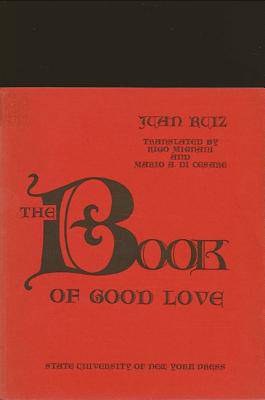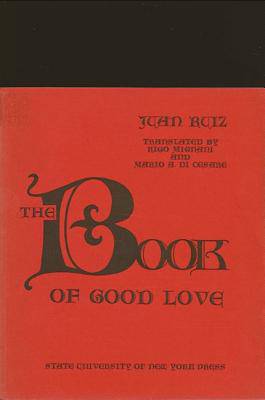
Bedankt voor het vertrouwen het afgelopen jaar! Om jou te bedanken bieden we GRATIS verzending aan op alles gedurende de hele maand januari.
- Afhalen na 1 uur in een winkel met voorraad
- Gratis thuislevering in België
- Ruim aanbod met 7 miljoen producten
Bedankt voor het vertrouwen het afgelopen jaar! Om jou te bedanken bieden we GRATIS verzending aan op alles gedurende de hele maand januari.
- Afhalen na 1 uur in een winkel met voorraad
- Gratis thuislevering in België
- Ruim aanbod met 7 miljoen producten
Zoeken
Omschrijving
A masterpiece in the tradition of the Decameron and the Canterbury Tales, Juan Ruiz's fourteenth-century Spanish narrative poem combines the comic and the serious, the bawdy and the practical, the satiric and the tender, the devout and the blasphemous. In a first prose translation, Professors Mignani and Di Cesare succeed in conveying the vitality and sly humor of the original. The poem consists of a loosely unified series of fourteen amorous adventures of the Archpriest of Hita, interlaced with debates, fabliaux, fables, and exempla. Ruiz suggests that while man ought to seek buen amor (true love, or love of God), he is prone to loco amor, or worldly love. The Book proposes to show human folly so that men may be forewarned of the bad and choose the good. The episodes related in the stanzas and in songs in various lyrical styles parody such conventions as courtly love, epic battle, or church ritual. Ruiz was clearly fascinated by the concrete, as well as the allegorical, for his episodes have dates and actual settings, and popular speech is incorporated into his verses. In their introduction, the translators survey the major scholarly studies of the poem and offer their own critical reading of it. Their annotated bibliography and notes to the translation will be useful to students as well as scholars.
Specificaties
Betrokkenen
- Auteur(s):
- Uitgeverij:
Inhoud
- Aantal bladzijden:
- 372
- Taal:
- Engels, Spaans
Eigenschappen
- Productcode (EAN):
- 9780873950480
- Verschijningsdatum:
- 30/06/1970
- Uitvoering:
- Hardcover
- Formaat:
- Genaaid
- Afmetingen:
- 149 mm x 178 mm

Alleen bij Standaard Boekhandel
+ 290 punten op je klantenkaart van Standaard Boekhandel
Beoordelingen
We publiceren alleen reviews die voldoen aan de voorwaarden voor reviews. Bekijk onze voorwaarden voor reviews.












